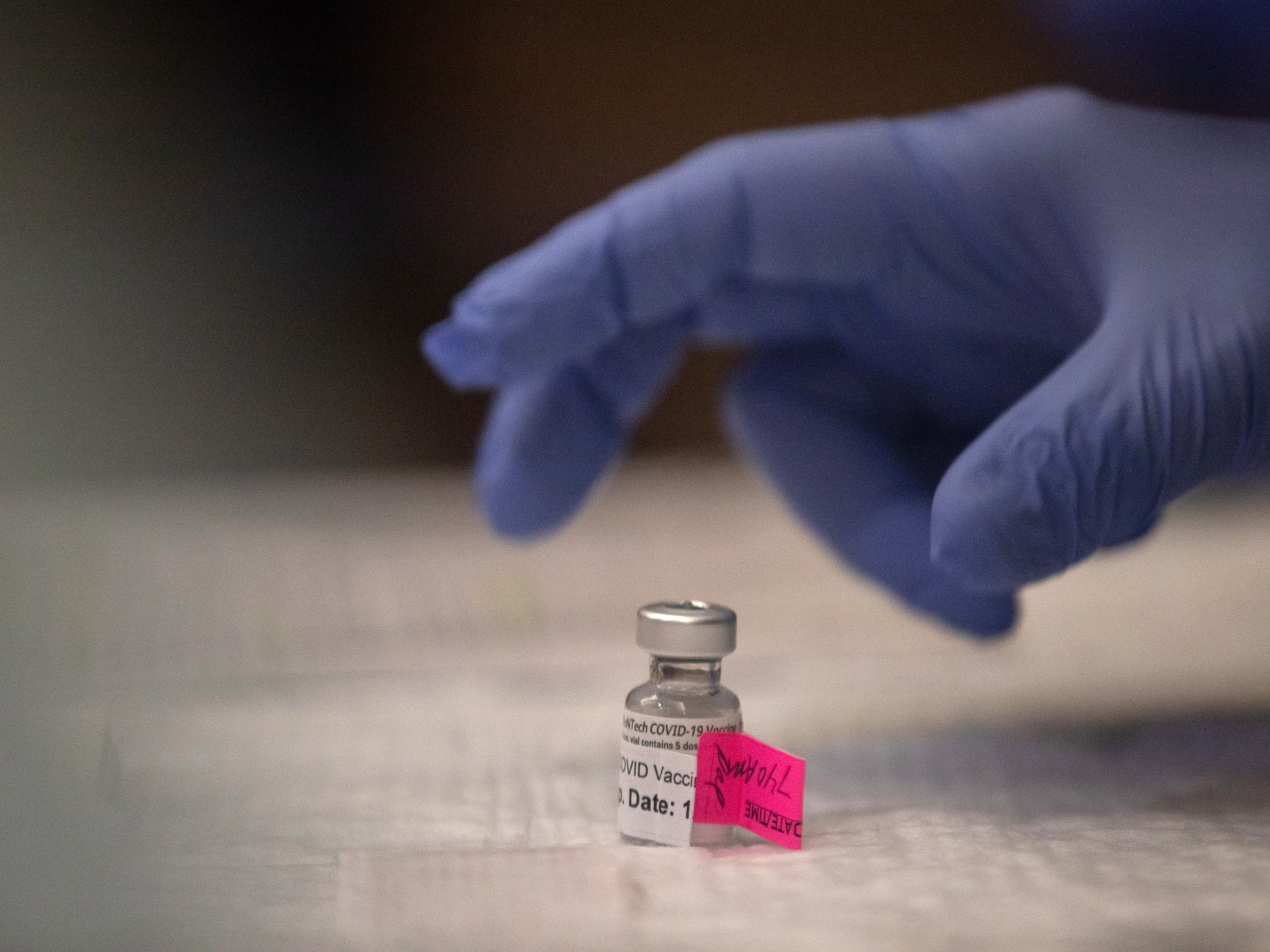
Visit Our Sponsors |
|
|
|
|
|
|
|
|
|
|
|
|
|
|
|
|
|
|
|
|
|
|
|
|
|
|
|
|
|
|
|
|
|
|
|
|
|
|

The first hiccups in the distribution of a COVID-19 vaccine in the U.S. included a holdup in delivering 3,900 shots to two states and the announcement that Pfizer Inc. would deliver about 900,000 fewer doses next week than are set to ship this week.
Four delivery trays of the Pfizer-BioNTech SE vaccine were pulled back from delivery to California and Alabama this week and sent back to the company because they were colder than anticipated, according to Gustave Perna, the army general who serves as Operation Warp Speed’s chief operations officer.
Each of the trays can likely be used to vaccinate 975 people. Pfizer has said its formula needs to be stored at 70 degrees below zero Celsius, the equivalent of negative 94 degrees below zero Fahrenheit. These trays were found to be much colder, according to Perna.
“We were taking no chances,” he said during a Wednesday news briefing. Pfizer and federal health agencies are working to determine whether the formula can still be used when it reaches such low temperatures, according to Perna.
Pfizer deploys the doses in temperature-controlled shipping containers that its own engineers developed. The containers are each equipped with GPS trackers “for continuous, real-time location and temperature monitoring,” according to the company, which has an around-the-clock control tower monitoring every shipment.
Meanwhile, U.S. officials said at the briefing that about 2 million doses of the Pfizer vaccine will be allocated for the country next week, fewer than the 2.9 million available this week when the first shots shipped. They offered no explanation as to why.
Alex Azar, the Department of Health and Human Services secretary, acknowledged production challenges that have been previously disclosed by Pfizer.
“As you know, they ended up coming short by half of what they thought they’d be able to produce and what they’d announced they’d be able to produce” in 2020, Azar said.
Pfizer’s vaccine was the first to win emergency authorization from the U.S. Food and Drug Administration and immunizations began this week. Operation Warp Speed has said it expects to have enough vaccines between Pfizer and another shot on deck from Moderna Inc. to inoculate 20 million Americans in December.
Operation Warp Speed has contracted for 100 million doses of Pfizer’s vaccine, which requires two shots per patient. Azar and other officials pushed back on recent reports that the U.S. government declined to purchase more doses from Pfizer, saying the company couldn’t guarantee they’d be ready by mid-2021.
Maximum Capacity
“They’re right now producing at their maximum capacity to deliver on the 100 million that is in the first tranche of the contract with us, and we’re providing manufacturing support,” he said.
On Tuesday, Florida Governor Ron DeSantis said that shipments of hundreds of thousands of doses hadn’t yet been delivered to the state due to “a production issue with Pfizer.”
Responding to DeSantis’s comments, Pfizer spokeswoman Amy Rose said the company “has not had any production issues with our COVID-19 vaccine, and no shipments containing the vaccine are on hold or delayed. We are continuing to dispatch our orders to the locations specified by the U.S. government.”
Asked about Azar’s remarks on Wednesday, Pfizer spokeswoman Sharon Castillo reiterated in an email that Pfizer has not experienced any production issues.
Less Insight
Unlike other vaccine developers that received support from Operation Warp Speed, Pfizer didn’t take research and development money from the U.S. government. Azar said that’s meant officials had less insight into the company’s production.
“The relationship that Pfizer wanted with Operation Warp Speed was the guaranteed purchase of a vaccine if approved by the FDA,” he said.
“To date we have had less visibility into their manufacturing processes, their manufacturing capacities, their locations, supplies, raw material issues, supply chain management, than we do with” other companies, including Moderna. AstraZeneca Plc, and Johnson & Johnson, he said.
“Part of our ongoing discussions is to remediate that and get better visibility into what they’re doing, what challenges they’re facing because they’ve made significant commitments to us and others in their manufacturing,” Azar said.
Antibodies Unused
Azar and other officials also said promising monoclonal antibody therapies authorized to treat COVID-19 patients who don’t need hospitalization have been used less often than they hoped.
The drugs, made by Eli Lilly and Co. and Regeneron Pharmaceuticals Inc., are available for emergency use for less severe cases. They must be given through infusions, which has created logistical challenges for medical providers.
“We really hope to see a much, much higher level of usage of the doses that are delivered to the health care facilities,” said Moncef Slaoui, chief adviser to Operation Warp Speed.
The antibody drugs are intended for older patients and people with other illnesses that put them at higher risk of hospitalization from COVID-19. They’re most effective when delivered early.
“The best time to get those antibodies is not when you show up in the emergency room, but soon after being diagnosed,” Azar said. The U.S. has allocated 300,000 doses to states, and many states have supply available, he said.
RELATED CONTENT
RELATED VIDEOS
Timely, incisive articles delivered directly to your inbox.






